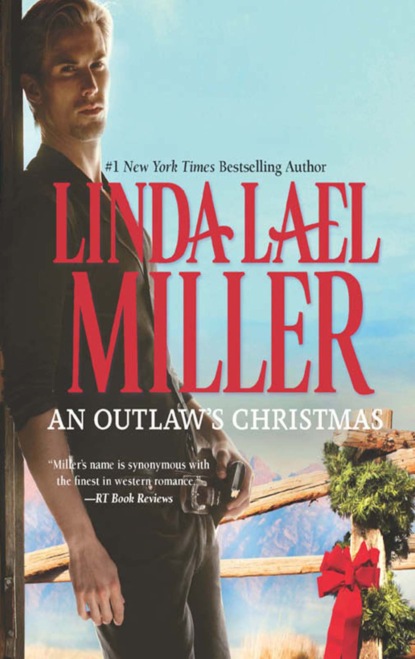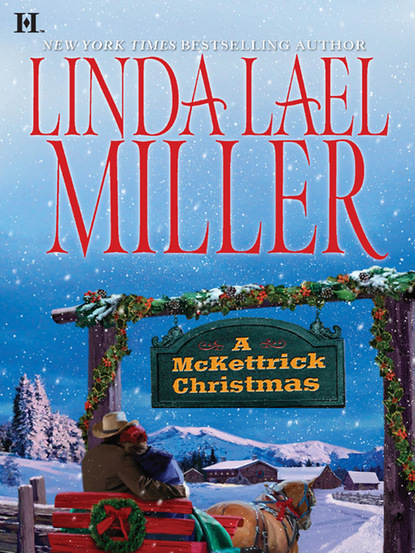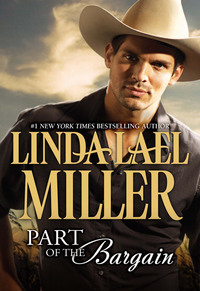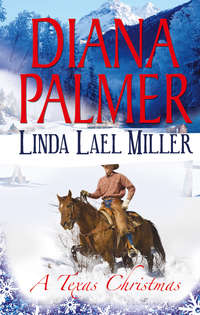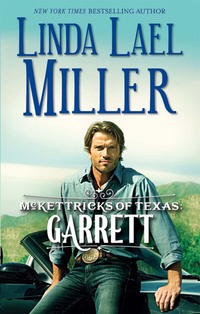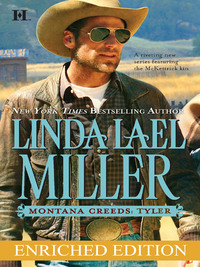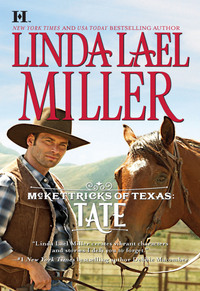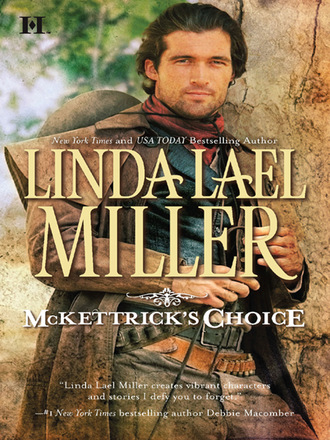
Полная версия
The McKettricks
Even under the brim of the hat, he saw her eyes shift away from his face, then back again. “He’s going to hang,” she said flatly. “If you knew my father, you wouldn’t waste your time thinking otherwise.”
“If you knew me,” Holt answered, “you wouldn’t be so sure of that.”
She took a step toward him, index finger raised for shaking, then stopped. Sighed heavily. Her shoulders sagged a little. “I don’t know who you think you are, Mr. McKettrick, but you don’t want to come up against my father and—my father.”
“Your father and Isaac Templeton?” Holt prompted.
“Is that what you were going to say?”
Color suffused her face. “Just leave. Go back to your wife and children.”
“I don’t have a wife,” Holt said. “My daughter is with people who love her. And I’m not leaving until I’ve finished my business here.”
Lorelei opened her mouth, closed it. Smacked the now-empty dishpan against her thigh in apparent frustration. Turned away.
He whistled to the dog, and she spun about, watching as the hound trotted over to lick his hand.
“Don’t tease him,” she said anxiously.
“I’m not teasing him. I’m taking him back to my ranch. We could use a good watchdog.”
She almost smiled, Holt decided, but damned if she didn’t catch herself in time. “His name is Sorrowful,” she said, in a soft voice. She was a complicated woman, Holt decided. Setting fire to wedding dresses, watching murder trials and loving an abandoned dog enough to bring him supper scraps.
Holt ruffled the critter’s floppy, misshapen ears. “Howdy, Sorrowful. Pleased to make your acquaintance.”
“Since when do you have a ranch around here?” she pressed, sounding worried. “I know everybody in this county, and you’re a stranger to me.”
“Since I bought the Cavanagh place,” Holt answered, watching for a reaction.
Her throat worked. “Next to Mr. Templeton’s spread,” she murmured.
“You friendly with him, too?” Holt asked lightly. “Or maybe your father is.”
She bristled. “What are you implying, Mr. McKettrick?”
He shrugged one shoulder. “Nothing, Miss Fellows. Nothing at all. Now, if I were you, I’d get on home. There are lots of unsavory types in San Antonio these days.”
She looked him over. “I’m well aware of that,” she said. Then she stiffened her spine, and hitched up her chin again. “You’d better be good to my dog,” she finished. She turned on one heel and marched away into the gathering twilight.
Sorrowful lived up to his name and gave a forlorn whimper, watching Lorelei go.
Holt felt like doing the same.
“A DOG!” Tillie cried joyously, a couple of minutes later, when Holt hoisted the mutt into the back of the buckboard, where he immediately commenced to sniffing the groceries.
“Sure enough,” agreed John, not so joyously. “He the kind to kill chickens?”
Tillie was already unwrapping the leftovers from the fancy supper they’d taken in the dining room of the Republic Hotel and offering them to the hound.
“He’s the kind to let us know if anybody’s sneaking around outside the house of a night,” Holt answered, climbing up to take the reins. He released the brake lever with one foot and urged the team into motion.
He looked up at the stockade as they passed. It gave him a lonely feeling to know Gabe was in there, even if he was feasting on the fried chicken dinner and whole strawberry pie sent over for his supper.
“He can sleep in my room,” Tillie said.
“Not unless you scrub him down with lye soap first, he can’t,” John decreed. Clearly, he had misgivings where the dog was concerned, but Holt was confident he’d come around in time. John was a tenderhearted man, though he liked to pretend otherwise.
Holt pondered how different things were as they headed out of town.
Once, he’d thought of the Cavanagh place as home.
Now, home was the Triple M. He wondered how Lizzie was getting along, and the old man and those three knuckleheaded brothers of his.
Margaret Tarquin never crossed his mind, but Lorelei Fellows sure cut a wide swath through his thoughts.
CHAPTER 7
THE WEDDING GIFTS, each one labeled for return to its original owner with many wrapped to mail, filled the twelve-foot table in the formal dining room. They teetered on chairs, crowded the long bureau top and took up most of the floor as well.
Lorelei surveyed the loot with relief. “That’s the last of them, then,” she told Angelina, dusting her hands together. “Raul can start loading them into the wagon.”
Angelina, having wended her way in from the kitchen traveling a path between the packages, shook her head at the sight. “Now what?” she asked.
Lorelei consulted the watch pinned to the bodice of her crisply pressed shirtwaist. After the interview with her father and Creighton in the kitchen yesterday morning, her resolution had wavered a little. The judge hadn’t mentioned an asylum, thankfully, but he did rant about the shame she’d brought upon the family name and threaten to confine her to the house until she’d come to her senses.
“I’m due at the Ladies’ Benevolence Society meeting in half an hour,” she said, and patted the tidy chignon at the back of her head. “I’d sooner run the gauntlet in a Comanche camp. Unfortunately, I don’t have that option.”
Angelina’s eyes rounded, then narrowed. “What are you thinking, doing such a thing? Those old biddies will eat you alive!”
“They’ll try,” Lorelei said, with false good cheer.
“Then why serve yourself to them like a sponge cake?”
“If I avoided them,” Lorelei reasoned, “they would call me a coward. And, worse, they’d be right.”
Angelina sighed. “I suppose there is no talking you out of this.”
Lorelei looked at her watch again. “If I don’t hurry, I’ll be late,” she said. With that, she took herself to the entryway, where her handbag awaited on the table next to the door, and left the freighting of the gifts to Angelina and her husband.
“Be careful,” Angelina fretted, hovering at her elbow.
Lorelei kissed the other woman’s creased forehead. “I don’t know how,” she answered, and left the house.
The membership of the Ladies’ Malevolence Society, as Lorelei privately referred to them, met once a month, in the spacious parlor of Mrs. Herbert J. Braughm, for tea, social exchange and precious little benevolence. Lorelei attended faithfully, for three reasons. Number one, they didn’t want her there. Thus, being a member constituted an exercise in principle. Number two, it was the best way to keep up with the doings in San Antonio. Number three, on admittedly rare occasions, the group actually did something constructive.
It was a ten-minute walk to the Braughm house, and the weather was muggy. Inwardly, Lorelei dragged her feet every step of the way.
Outwardly, she was the very personification of dignified haste.
Mrs. Braughm’s maid, Rosita, actually gaped when she opened the door to her.
Lorelei smiled and waited expectantly to be admitted.
Rosita ducked her head and stepped back to clear the way. “The ladies,” she said, in accented English, “are in the garden.”
“Thank you,” Lorelei said, adjusting her spotless gloves and shifting her handbag from her left wrist to her right. Her very bones quavered, but her voice was steady.
Mrs. Braughm’s garden was gained through a set of French doors, standing open to the weighted air. Plump roses nodded, almost as colorful as the hats and dresses of the women seated around pretty white tables, sipping tea and nibbling at dainty refreshments. The chatter ceased the moment Lorelei stepped onto the tiled patio.
She straightened her spine and smiled.
“Why, Lorelei,” Mrs. Braughm said, too loudly. The legs of her chair scraped shrilly as she stood, small and fluttery, to greet an obviously unexpected guest.
“I hope I’m not late,” Lorelei said, meeting the gazes of the other guests, one at a time. Most were cold, but she saw a glimmer of sympathy in some of the younger faces.
“Of course not,” Mrs. Braughm chirped. “Come, sit down. Have some tea. We were just about to start.”
No one moved, and every extra chair held a handbag, a knitting basket, or a small, watchful dog.
Mrs. Eustacia Malvern, who had held the meetings at her home on Houston Street until the task had become too much for her, reached for her cane and used it to steady herself as she raised her considerable bulk out of her chair. Her Pekinese, Precious, took the opportunity to stand on its hind legs and lick the whipped cream off Mrs. Malvern’s dessert.
“What we were just about to do,” Mrs. Malvern said, ignoring the dog, “was review our standards of membership.”
Murmurings were heard, here and there. No one dared look directly at Lorelei, who stood still and straight, waiting.
“As you know,” Eustacia went on, “we have certain criteria.” Among other things, Mrs. Malvern was Creighton’s second cousin, Lorelei recalled. Raul was probably loading her wedding gift, a silver compote, into the back of the wagon at that very moment.
Lorelei did not speak. Bees buzzed from flower to flower, their drone growing louder with every passing moment.
Mrs. Malvern took in the gathering. The dog finished the whipped cream and went for a tea cake.
“I think we are all agreed, Miss Fellows, that you are not our sort.”
NOT OUR SORT.
Standing there in Mrs. Braughm’s lush garden, surrounded by the cream of San Antonio society, Lorelei felt a sting of mortification and, conversely, not a little exhilaration. “Do you speak for everyone?” she asked mildly.
No one spoke. No one met Lorelei’s gaze, save Mrs. Malvern, who seemed intent on glaring a hole right through her.
With a delicate lapping sound, the Pekinese began to drink tea from the old woman’s cup. Except for that, the hum of a few bees and the nervous tinkle of a cup against a saucer, the silence was absolute.
“Very well, then,” Lorelei said. With that, she turned, keeping her shoulders and spine as straight as she could, and took her leave.
She couldn’t go home, not yet.
She might have visited her old friend, Sorrowful, behind the Republic Hotel, but now even the dog was gone. He would surely be better off on the Cavanagh place, with regular feeding and room to run, but the knowledge of his absence was a thrumming ache in her heart.
It was sad indeed, she reflected, when a person’s truest friend was an old war veteran of a dog.
Pausing in the shade of an oak, Lorelei pulled a lace-trimmed handkerchief from beneath her sleeve and dabbed at her eyes. Stop feeling sorry for yourself, she scolded silently. You still have Angelina.
She hadn’t heard the horse approaching, and by the time she realized she wasn’t alone, it was too late.
“Morning, Miss Fellows,” said Holt McKettrick, swinging down from the back of a fine-looking Appaloosa gelding. “Maybe I’m mistaken, but you give the appearance of being a damsel in distress.”
Lorelei’s throat ached. Her eyes felt puffy and red, and the edges of her nostrils burned. It galled her that this man, of all people, had to be the one to catch her weeping. “I’m perfectly fine,” she said, with a sniff.
His smile was slow and easy, and it pulled at something deep inside her. “Whatever you say,” he allowed. His eyes twinkled with good-natured skepticism.
“How do you expect to make that ranch pay if you spend all your time in town?” Lorelei challenged, taking in his fine suit.
He chuckled, belatedly removing his hat. The band, made of hammered silver, caught the light and made it dance. “I’ll make it pay, all right,” he said, with quiet confidence. “And it happens I have business in town.”
Lorelei knew she should simply walk away, but she couldn’t find it within herself to do that, so she simply stood there, with one gloved hand against the trunk of the oak tree. “How is Sorrowful faring?” she asked. It was a safe topic, as far as she could tell.
Again, that slow, lethal grin. His teeth were good—white and straight. He’d probably never had a cavity in his life. “Sorrowful,” he said, “is glad of a bed behind the stove and table scraps twice a day. He’s a fair hand at chasing rabbits, too.”
Lorelei smiled. “Good,” she said.
“You’re welcome to visit him anytime, if you’re so disposed.”
“Thank you,” she replied softly.
“I could see you home,” Holt ventured, turning the fancy hat in his hands.
She shook her head. “I don’t think I’m ready to go there just yet,” she said.
He didn’t press for a reason. “Well, I guess I’d better get along.”
He turned, put a foot in the stirrup and mounted with an ease Lorelei couldn’t help admiring. She yearned to ride, just get up on a horse’s back and race over the ground, travel as far and as fast as she could, with the wind buffeting her face and playing in her hair. Her father had forbidden her that pleasure, along with many others, claiming it was not a suitable enterprise for a lady.
In reality, it was because her older brother, William, had been thrown from a pony when he was nine. He’d struck his head on a rock and died three days later. The judge’s mourning had been terrible to behold.
Holt tilted his head to one side, watching her face. “Something the matter?”
Lorelei was swamped with memories—her father’s utter grief. All the mirrors in the house draped in black crepe. The sound of the rifle shot, ringing through the heavy air of a summer afternoon, as William’s pony was put down.
All of this had happened the day she turned six. Raul had led away the little spotted Shetland that was to have been her birthday gift, later admitting that he’d given it to a rancher.
Child that she was, she’d mourned the lost pony more than William, at the time, and the recollection of that caused a sharp pang of guilty sorrow.
She sighed. “No,” she lied, catching hold of his question, left dangling in the air for a long moment. “Nothing’s wrong.”
“I don’t believe you,” Holt answered quietly.
Then he took the reins in one hand, touched the brim of his hat and went on, toward town.
Lorelei stared after him, wondering when he’d leave San Antonio and go back to wherever he’d come from.
CHAPTER 8
GUILT, AND A NEED for some errand to quiet her mind and keep her out of the house for a while, sent Lorelei toward St. Ambrose’s, an old mission at the edge of town. The walk was long and the heat insufferable, but when she reached the shady plot where her mother and William rested side by side, she found some solace.
Selma Hanson Fellows’s marker was a marble angel with a trumpet raised to its stone lips. The angel’s eyes gazed with longing into the far reaches of eternity, and the mold and lichen in the crevices of its finely chiseled face and the folds of its flowing gown gave it an eerie dimension.
Lorelei kissed the tips of her fingers and set them against the S in her mother’s name. A gentle breeze wafted through the cemetery, cooling her scalp.
She searched her mind for even the ghost of a memory of her lost mother and waited, but nothing came.
William’s grave was more modest, with a smaller angel to oversee it, but the words carved in the granite base had a poignancy that Selma’s lacked.
BELOVED SON OF ALEXANDER FELLOWS MY SOUL PERISHED WITH HIM.
Lorelei pulled out her handkerchief, for the second time that morning, and touched it to her eyes. The judge had stayed drunk for a solid month after William’s funeral, night and day. She remembered his ragged beard, his unkempt hair, standing up in ridges from the repeated thrust of his fingers. The sweat-and-tobacco stench of his clothes, underlaid by the subtler smell of despair.
“You,” her father had muttered once, when she’d crept into his study and tried to crawl into his lap. He’d pushed her away with a rough motion of one hand and a surly, “If one of you had to die, why did it have to be him? My only son. My only hope.”
Lorelei wrapped both arms tightly around her middle and lowered her head, remembering. That day, in the space of an instant, Alexander Fellows had stopped being “Papa” and become the Judge. They’d been on opposite shores of an invisible river ever since, and if there was a ford or a bridge, Lorelei had yet to find it.
Except for Angelina, and a few school chums and faraway cousins, she’d been alone ever since. Until Michael had come along.
A sob rose in her throat. She swallowed it with a painful intake of breath.
Determinedly, she pulled herself together. There was no profit in weakness, no value in looking back.
Michael was buried in the Chandler plot, among his own people—parents, grandparents, a sister who’d died in infancy, numerous aunts and uncles.
Lorelei made her way to him and sat down on a bench nearby. Michael’s final resting place was a simple one, with only a stone cross to commemorate him.
In the depths of her heart, Lorelei thought she heard him speak her name.
CROUCHING, Holt laid Lizzie’s flowers within the circle of white stones enclosing Olivia’s gravesite. A slab, long-fallen and half-covered by the encroaching grass, bore only her first name and the date of her death.
The flowers were yellow roses, heady with scent. He’d seen them from the street, flourishing in a garden, shortly after leaving Lorelei under the oak tree, and stopped to knock on the front door of the house and ask if he might buy a dozen or so.
The old woman who’d answered had regarded him solemnly. “Are they for a lady?” she’d asked, when she was through sizing him up. He was glad he’d shaved and put on good clothes.
“Yes,” Holt had said, without hesitation, for Olivia had been a lady, in every sense of the word. And she’d given him Lizzie, the single greatest gift of his life.
“Reckon she must be right pretty, if a fellow like you wants to give her roses.”
Holt had smiled, albeit sadly. “She was,” he said. “Prettiest woman in San Antonio. Olivia died of a fever a few years back.”
Lorelei had slipped into his mind then, out of nowhere, but he’d set her firmly aside.
“I’ll cut them for you,” the woman said.
Holt had reached for his wallet.
The old lady shook her head. “It’s a sorry day when I have to take money for a few flowers,” she said. Then she’d slipped back into the cool dimness of the house, returning momentarily wearing a sun bonnet and carrying a pair of shears.
Now, in the graveyard, Holt arranged the flowers with distracted care.
Lorelei was seated on a bench, not twenty yards from him, her hands clasped in her lap. The breeze danced in the tendrils of dark hair curling at her nape.
If she saw him, she’d think he was following her. Probably go straight to her father, the judge, and lodge a complaint.
He might have smiled at the image if he hadn’t been putting flowers on Olivia’s grave, and if Lorelei hadn’t looked as though she might splinter into tiny shards at any moment, like a vase irretrievably broken, caught in that tenuous place between wholeness and utter disintegration.
He lowered his head, laid a hand on Olivia’s stone. I’m sorry, he told her, in the privacy of his mind. I’d have come back for you, if I’d known about Lizzie. Wouldn’t have left in the first place, if I’d had any sense.
His eyes took to burning, and he rubbed them with a thumb and forefinger.
Some sound, or perhaps a scent or a movement, made him look up.
Lorelei stood opposite him, surveying him with a slight frown marring her otherwise perfect forehead.
“You loved her,” she surmised.
He nodded. “Not enough,” he replied hoarsely.
She bent down, peered at the marker. “Olivia,” she mused quietly. “I knew her. She was a fine seamstress.” Their gazes met across the narrow circle of stones. Lorelei looked thoughtful. “She had a young daughter. Lindy? Libby?”
Holt got to his feet. He’d left his hat with the horse, perched on the saddle horn, but he reached up as if to touch the brim before remembering that. “Lizzie,” he said.
Lorelei absorbed that. “Yours?” she asked, very quietly, and after a very long time.
Holt nodded. He would have told just about anybody else that it was none of their business who had fathered Lizzie, but it seemed a natural question coming from Lorelei, though he couldn’t have said why.
“I see,” Lorelei said, and Holt feared that she did see, all too clearly. Olivia had had to make her own way in the world, and Lizzie’s way as well, with only the help of her sister, Geneva. After Olivia’s passing, Geneva had managed to track Holt to the Arizona Territory, and she’d been on her way to Indian Rock, the nearest town to the Triple M, to leave Lizzie with him, when Jack Barrett had come upon their stagecoach, broken down alongside the road, and decided on robbery. In the course of that, he’d killed both Geneva and the driver. Holt’s brother, Jeb, and the town marshal, Sam Fee, had come upon the stage the next morning, and found Lizzie there, alone and scared.
Holt set his back teeth. It had fallen to Jeb to deal with Barrett, when the time came, but every time he thought of that night, Holt wished he’d been the one to put the bastard out of his misery.
“I won’t keep you, Mr. McKettrick,” Lorelei said, and by the look on her face, he knew she’d judged him and found him wanting. He’d left his woman and his daughter to fend for themselves, that was the fact of the matter. There wasn’t much he could say in his own defense.
He simply nodded, and watched as Lorelei turned and walked away.
He wasn’t given to excuses or explanations.
So why did he want to hurry after her and make some kind of case for himself? Say he hadn’t known about Lizzie—that he’d always meant to patch things up with Olivia but had never found the time. Never gotten past his stupid pride.
He swore under his breath. If his hat hadn’t been with the horse, he’d have wrenched it off his head and slapped it against one thigh in sheer aggravation.
CHAPTER 9
JOHN CAVANAGH felt a prickle trip down his spine, the same one he’d felt back in ’64, just before a rebel cannonball took off a piece of his thigh. He looked around for Tillie—saw her on the other side of the draw, bouncing along on the back of her mule, with that worthless yellow dog bringing up the rear.
She was probably out of rifle range, so he didn’t shout a warning, though one sure as hell surged up into the back of his throat, bitter and raw.
Holt was in town, trying, among other things, to hire a lawyer for Gabe and the new man, Kahill, was rounding up strays. The herd, once two hundred head of cattle strong, had dwindled down to less than fifty, by John’s reckoning, and they needed every one they could drive out of the brush.
The prickle came again. Somebody was watching him, from someplace nearby, and probably looking down the barrel of a gun.
He drew back on the reins, looked around.
The rider sat at the top of the draw, under a stand of oak trees.
He recognized the man by his shape and bulk. Templeton.
John spat, ran one arm across his mouth and headed straight for the trespassing sum-bitch.
Templeton waited, the barrel of his rifle resting easy across the front of his saddle. He wore a fancy bowler hat and the kind of duds a Texan would get married—or buried—in but never take out of mothballs otherwise. His sandy mustache twitched slightly, and he shouldered away the fly buzzing around his muttonchop whiskers. Something meant to pass as a smile played on his bow-shaped mouth.
“Afternoon, John,” he said. His accent was English, and right fancy. Better suited to a tea party in some castle than the Texas range.
John let his gaze travel to the rifle. “You hunting something?” he asked.
“This is rough country,” Templeton replied smoothly.


